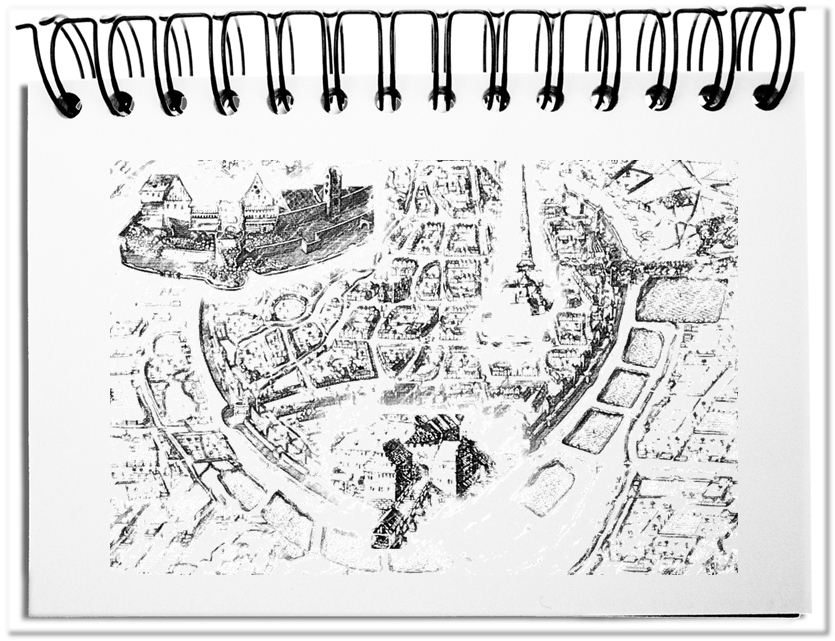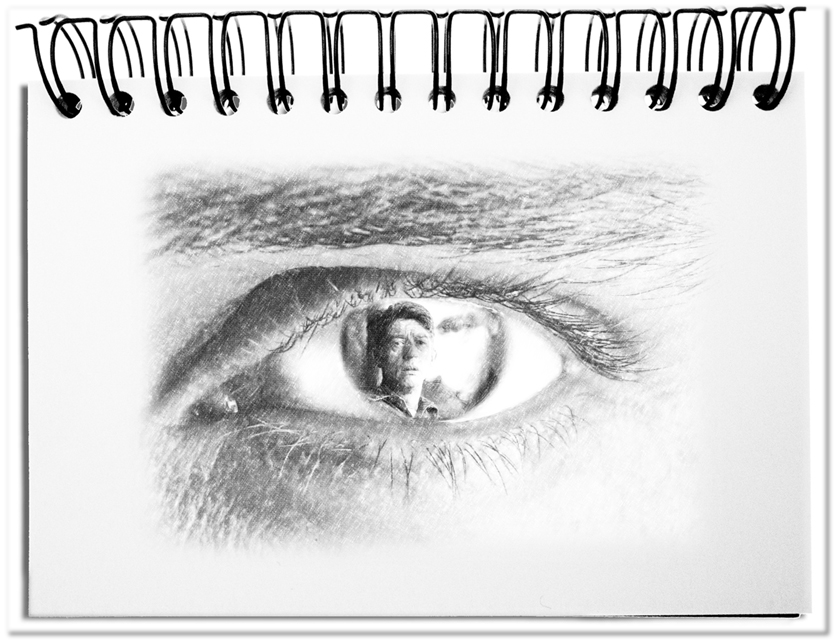The development, from the accumulation of some houses to a city, as an economic, social, cultural and political center, followed the traffic routes since the beginning of civilization – along coasts and waterways, e.g. from Marseille via the Rhone, Saône and Rhine to the north. Although many German cities date back to Roman times, more than two thousand years ago, most cities were appointed in the Middle Ages and the second half of the twentieth century. We identify many aspects of the medieval city in the architecture of today’s virtual platforms. This makes a medieval city to an ideal metaphor for a platform.
If we sketch the characteristics of a virtual platform, the similarities catch our eyes.
- Access control
The medieval city was surrounded by a wall that protected the possessions of the inhabitants. Access was only possible for authorized persons through guarded city gates. Within the city wall, the inhabitants lived in defined quarters.
Platforms are also structured according to topic areas and stakeholders. The gate to the platform also opens only for those, who have a corresponding account, i.e. a user ID and a password. - Infrastructure
In a medieval city, the residents used common facilities – from the town hall, the market square, public streets, schools, pubs, to prisons and execution sites.
Virtuality also requires a general infrastructure – from administrative facilities, marketplaces, workflows, training areas, entertainment areas, to facilities for the punishment of extreme misconduct. - Cultural diversity
The population of the city is made up of different cultures and professions. You find patricians, craftsmen, merchants, day laborers, hangmen and other trades.
The platforms also have a large variety of members, who are divided into providers, consumers and platform operators, who meet there to do business with each other. - Economic hub
In the Middle Ages, the reason for the foundation and mainstay of the city was the market place. There were goods for sale, manufactured in the city or procured from far away. In addition, guilds evolved, which mutually enriched their kindred business.
The virtual platform also serves, above all, for the regular exchange of services between providers and consumers and to strengthen the own specialty. - Governance
Due to the dense accumulation of many people, strict rules for coexistence were effective within the city walls. The craftsmen were organized into guilds, which determined regulations regarding education, tools and quality for their field of expertise. Non-members were not allowed to practice the respective craft. Taxes were collected to finance the administration of the commons.
Virtual platforms also define rules that certify participants according to certain criteria, determine clear procedures, and ensure the outcomes of their work through best practice. The taxes of the virtual platform are the membership fees and donations. - Future development
The progress of the city was the responsibility of the city lords, who were made up of members of the upper class. They decided on the expansion of the infrastructure, the influx of people and the promotion of certain trades.
Accordingly, the operators of the platform are today primarily responsible for the continuous expansion of the functions, the administration of new and existing members, and the definition of new scope of services and standards.
Bottom line: The scope of a medieval city was determined by the physical accessibility, i.e. eventually by the wall. The same applies to a virtual platform – because you are globally only one click away from the platform and it is accessible to anyone, who has access to the Internet. The counterpart to the city gate is the access control, which protects the platform from unauthorized use. A wide variety of cultures can settle and do business within the area, as long as they comply with the regulations. Everyone benefits from the expansions, which offer constantly growing services. The aspects of a virtual platform become visible on the basis of a medieval city. This makes the medieval city the ideal metaphor for a virtual platform.


